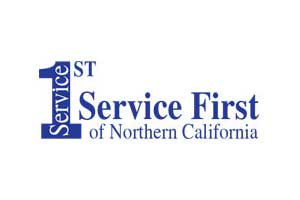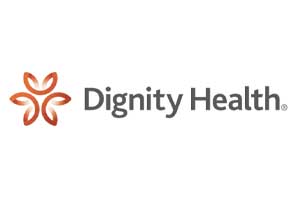Skip To Rehab Listing
Drug and Alcohol Treatment Facility Settings and Approaches
The large number of those who struggle with drug and alcohol addiction in the Lodi area necessitate the presence of a variety of treatment programs, where patients can access the services they need in a convenient setting. These programs include the following: long term drug treatment, outpatient hospital programs, short term drug rehab centers, inpatient treatment centers, outpatient detoxification centers.
These treatment programs provide several various modalities to addiction treatment, making it possible for patients to find an approach that is effective for them. People seeking rehab can find any of the rehabilitation approaches available in Lodi including: cognitive/behavior therapy, motivational interviewing, trauma therapy, brief intervention approach, trauma-related counseling, rational emotive behavioral therapy.
Special Programs for Substance Abuse Recovery
In order to achieve sustainable sobriety, people struggling with substance abuse sometimes require tailored programs designed for their unique circumstances. Lodi treatment programs provide many programs such as: residential beds for client's children, persons with eating disorders, active duty military, self-help groups, aftercare/continuing care, veterans.
Patients can ask about a facility's services and methods and receive guidance in finding the best treatment for their needs.
Treatment Payment Options
Drug and alcohol rehab programs also customize their payment alternatives to suit the different financial needs of their patients. In general, patients have multiple payment choices for their treatment, including the following: private pay, private health insurance, payment assistance, sliding fee scale, state education funds, state corrections or juvenile justice funds.
Those looking for treatment should not allow finances to be a barrier. Treatment centers can walk them through their payment choices and assist them in finding a workable solution.
Thanks to Lodi's various options for drug and alcohol rehab and payment, individuals looking for help can get a suitable, tailored, and affordable rehab program.
Commonly Asked Questions about Addiction and Treatment
What are the principles of recovery from drug and alcohol addiction?
Recovery from drug and alcohol addiction is an unique and individualized process. However, there are several key principles that are commonly recognized as important for successful recovery. These principles include:
- Acceptance: Acknowledging the presence of an addiction and the need for change is the first step in the recovery process. Acceptance involves recognizing the consequences of substance use and taking responsibility for one's actions.
- Commitment: Recovery requires a strong commitment to change and the willingness to take consistent action. This may involve making difficult decisions, such as cutting ties with unhealthy influences or seeking professional help.
- Support: Building a strong support network is critical in recovery. This can include friends, family, peers, counselors, or support groups, who can provide encouragement, advice, and understanding throughout the process.
- Holistic Approach: Addressing all aspects of a person's life�''physical, mental, emotional, and spiritual�''can contribute to a more successful recovery. This may involve incorporating healthy habits, such as exercise, proper nutrition, and mindfulness practices, into one's daily routine.
- Personal Responsibility: Taking personal responsibility for one's actions and choices is essential for long-term recovery. This includes understanding triggers, developing coping strategies, and setting boundaries to prevent relapse.
- Coping Skills: Learning and practicing healthy coping skills can help manage stress and emotional challenges without resorting to substance use. These skills may include relaxation techniques, problem-solving strategies, or communication skills.
- Ongoing Growth: Recovery is a lifelong process that requires ongoing growth and self-improvement. This may involve setting personal goals, building self-esteem, and continuously evaluating and adjusting one's approach to recovery.
- Hope: Believing in the possibility of a better future and maintaining a positive outlook is crucial for recovery. Hope can serve as a powerful motivator and provide the strength to overcome setbacks and challenges.
- Honesty: Being honest with oneself and others is essential for building trust and promoting self-awareness in recovery. Honesty helps individuals confront their struggles and maintain accountability for their actions.
- Patience: Recovery is a gradual process that requires patience and perseverance. It's important to recognize that setbacks and challenges are a normal part of the journey and to maintain a long-term perspective on personal growth and healing.
Does a drug abuser lose empathy for others?
Chronic drug abuse can indeed affect an individual's ability to empathize with others, but it's important to note that this doesn't occur in every case and can depend on a variety of factors, including the specific substance used, the duration and severity of the abuse, and the individual's personal characteristics.
Drugs alter the brain's structure and function, including areas associated with empathy and social cognition, such as the prefrontal cortex and the amygdala. Over time, these changes can lead to decreased empathy, making it harder for individuals to understand or share the feelings of others.
Additionally, the lifestyle associated with chronic drug abuse can also contribute to a loss of empathy. As individuals become more focused on obtaining and using drugs, they may start to neglect their relationships and responsibilities, which can further erode their ability to connect with others on an emotional level.
Furthermore, individuals with substance use disorders often experience a range of negative emotions, such as guilt, shame, anxiety, and depression, which can make it harder for them to empathize with others. They might also become defensive or dismissive of others' feelings as a way of protecting themselves from these negative emotions.
However, it's important to note that these changes are not necessarily permanent. Many people who recover from substance use disorders are able to rebuild their capacity for empathy with time, treatment, and effort. Cognitive-behavioral therapies, mindfulness practices, and other therapeutic approaches can help individuals to improve their emotional understanding and empathy.
Why are drug addicts so manipulative?
Individuals struggling with addiction can sometimes exhibit manipulative behaviors, but it's essential to understand that this isn't a characteristic of the person themselves, but rather a manifestation of the disease of addiction. These behaviors are typically driven by a powerful compulsion to continue using substances, often rooted in physical dependency, fear of withdrawal, or a desire to escape from negative feelings.
Manipulative behaviors can manifest in various ways. For instance, a person may lie or deceive others about their substance use, make excuses, shift blame, or use emotional tactics to avoid confrontations about their behavior or to secure resources for continuing their drug use. Often, these individuals are not consciously trying to be deceptive or manipulative; instead, they are driven by the intense compulsion created by their addiction.
Addiction also affects brain functions, including those responsible for judgment, decision making, learning, memory, and behavior control. When the brain's reward system is hijacked by substance use, obtaining and using the substance can take priority over everything else, leading to behaviors that the individual might not exhibit otherwise.
It's worth noting that not every person with a substance use disorder exhibits manipulative behaviors, and if they do, it's not a sign of their character, but rather the severity of their disorder.
The development of manipulative behaviors signals a need for professional help. Substance use disorders are serious, and effective treatments often involve a combination of medication, therapy, and long-term follow-up. Therapies like cognitive-behavioral therapy (CBT) can help individuals understand their behaviors, develop healthier coping mechanisms, and rebuild damaged relationships. Family and loved ones can also benefit from guidance and support on how to navigate these challenges without enabling the addiction.













